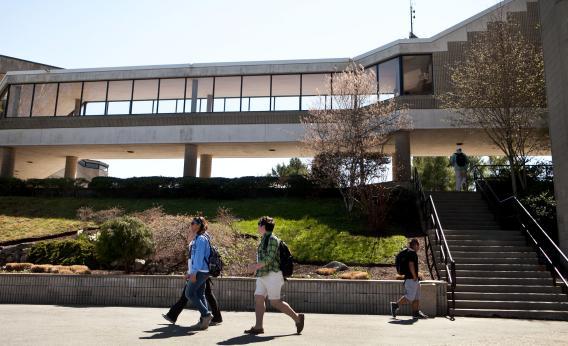As prestigious universities across America dip their toes into the waters of MOOCs—Mass Open Online Courses, aka Internet learning—Amhest College in Western Massachusetts is standing athwart history proudly shouting, “STOP!”
Which I think is as it should be. If there’s any kind of institution of higher learning whose basic model isn’t threatened by technological change, it’s the Amherst (and Swarthmore and Williams and Colby and Wellesley and Pomona and so forth) model of very exclusive small liberal arts colleges. These are places that, starting before the Internet ever existed, marketed themselves to students and parents on the basis of discussion-oriented classes, low teacher:student ratios, and person-to-person engagement. What’s more, not only are these schools small but there aren’t that many of them. It’s a model that’s never educated a large share of the American population and has never aspired to educate a large share of the American population.
My guess is that not only will this model be fine, it’ll probably actually grow. As more institutions feel pressure to compete with cheaper alternatives, they’ll also want to market themselves on the basis of person-to-person engagement. But lots of existing institutions aren’t really structured to deliver that. They’ll end up losing some students to cheaper alternatives, and being pressured to deliver a higher level of engagement to the students that remain. More Amherst-style discussion and fewer big lecture halls. Meanwhile, the existence of digital technology means that small schools will feel (and be) less limiting than they historically have been. If there’s something you’re dying to learn about that the smallish school you attend doesn’t happen to offer a course on, there’ll be any number of edX (or whatever) classes you can take to supplement what your school offers.
